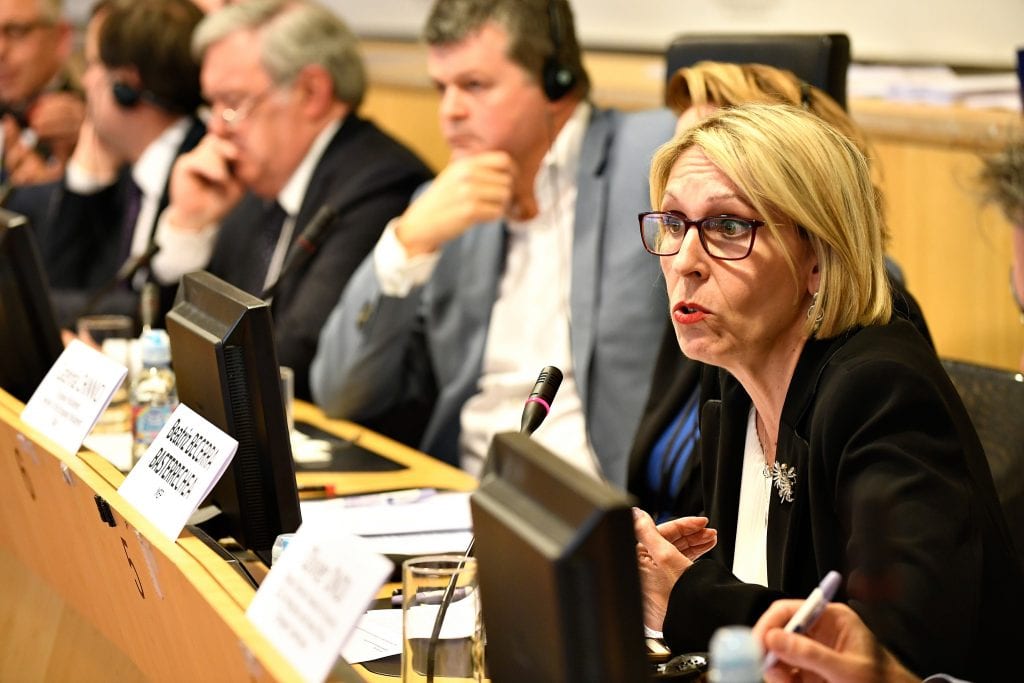
On January 1, 2019, Jair Bolsonaro, elected by more than 55 million Brazilians, will become president of the largest country in South America. On the eve of his inauguration, he announced that there will be significant reform in education. To achieve this, he proposes “combating Marxist garbage.”
This term has already been used previously by the incoming Education Minister, the Brazilian philosopher Ricardo Vélez Rodríguez.
He spoke of this topic on his Facebook account when he accepted Bolsonaro’s nomination. He and the incoming Foreign Minister, Ernesto Araujo, agree that Marxism must be confronted in internal and external politics, beginning by combating indoctrination in the educational system.
“One of the objectives for improving Brazil in the world’s education rankings is to combat the Marxist garbage that was installed in educational institutions. Together with the Minister of Education and others involved, we will evolve in forming citizens and not more political militants,” Bolsonaro said on social media.
The appointment of Vélez Rodríguez was at the suggestion of the philosopher, Olavo de Carvalho, who has operated as the ideological guru not only for the Bolsonaro family, but also for the South American right.
De Carvalho was a Communist in his youth; he was even imprisoned during the last military dictatorship. He knows the movement from within.
A story homologous to his is that of the English writer George Orwell, who went to fight in the Spanish Civil War, with a coalition of Communists and anarchists. From the bowels of the Marxist armed war he was able to leave a warning manual, 1984, where he announced what the world would be like if socialism came to power. The result is totalitarianism, children indoctrinated in schools to denounce their parents and the replacement of spontaneous relationships, with adherence to socialist doctrine.
He also published Animal Farm, a story that explains through an animal-based allegory, how a struggle against humans (represented by the bourgeoisie and oligopolies) ends up turning the hierarchy, represented by the pigs, into what they they claimed to hate. The pigs end up living as humans, just as the leaders of socialist revolutions end up living as those who they seek to destroy: they do not distribute the wealth but rather appropriate it. A legendary example of this involves Fidel Castro and Che Guevara walking on a yacht while wearing Rolex gold watches.
Animal Farm was banned in Cuba because of its “counterrevolutionary” character, because it exposes socialism.
Unlike Orwell, who left his work as a warning before dying, de Carvalho is still alive, and he offers online workshops, where lays the intellectual framework for achieving victory in the realm of politics and economics.
Now, with the ascent of Bolsonaro to power, this reaction to Marxism has emerged as a powerful political force.
This was evident in the recently convened Conservative Summit of the Americas, held in Iguazú, Brazil, the first of its kind, whose speakers included key speakers in the South American right, from Cuba to Chile, including Olavo De Carvalho.
Eduardo Bolsonaro, the most voted deputy in the history of Brazil, and the son of the president-elect, referred to him as his teacher, since he has attended his workshops.
This event marked a milestone. Just as Brazil hosted the Forum of Sao Paulo, which served as the most important organization gathering of the Marxist revolution after the fall of the Berlin Wall, the Conservative Summit of the Americas, also started in Brazil, and represents the reorganization of the continental right.
Chilean deputy and presidential candidate, José Antonio Kast, who was physically assaulted in the northern Chilean city of Iquique because of his political positions, declared that Chile will be the next site for the summit.
Under the slogan “conservatives in customs, liberals in the economy”, the adherents of the incipient right-wing political movement propose to fuse two philosophical, political, and economic currents, where a society is built with consensual values, such as the preeminence of the institutions prior to the state, the critical role of the family, reducing the role of the state in private life thereby developing prosperous societies, diminishing economic interventionism, and with it, dependence on politicians.
To achieve this, the new Minister of Education, author of the book “The Great Lie – Lula and Workers Party Patrimonialism”, proposes “once again placing the basic and fundamental education system at the service of the people, and not at the service of the bureaucratic class, seeking to turn our republican institutions into instruments for their political leadership.”
 Versión Español
Versión Español













